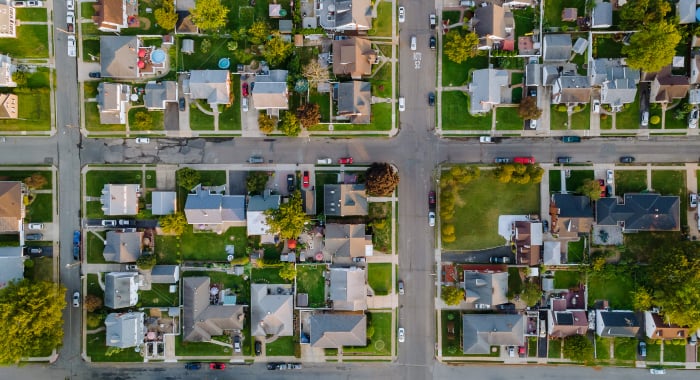What type of mortgage is the best? The answers aren’t as complicated as you may think. And a big piece of the puzzle is to understand what works for your specific situation.
The starting point is to understand the difference between various types of loans and then, understand how to get ready to buy a home.
Mortgage types can be broken down into three common categories – government-insured, government-sponsored, and conventional mortgages. Each type offers various rates, requirements, and terms. Here is some information from our partners at GreenPath Financial Wellness to help you choose the right loan (Greenpath's financial counseling services are free to HUECU members and a great place to start if you're looking to buy a home or need financial advice).
Government Insured- Mortgages
Federal Home Administration (FHA) Loan – FHA loans tend to be popular with first-time homebuyers. They have easier requirements to qualify (having a lower credit score doesn’t eliminate you from consideration). They typically require a lower down payment (3.5%), and typically have lower closing costs. The FHA works with approved lenders to provide them with insurance against the risk of a homeowner defaulting. Since a lender’s risk is reduced, they can offer a borrower a better deal on the terms and down payment.
Interest rates for FHA loans can be higher and you could have the additional challenge of paying mortgage insurance for the life of the loan.
United States Department of Agriculture (USDA) Loan
A USDA loan can also be a good option for low-to medium-income borrowers looking for a home in rural areas. To qualify for a USDA loan, the property has to be located in a qualified area. You will also have to meet specific income requirements.
First-time homebuyers may qualify for low or no down payment. Although there may be mortgage insurance on these properties, it may be lower as well. There may also be regional limits on the amount you can borrow.
Veterans Affairs (VA) Loan
Similar to FHA loans, VA loans are backed by a government agency. Since they are backed by the government, a lender may offer more favorable interest rates, terms, and down payment options. To qualify for a VA loan, you must be a current or former service member who served our nation for specified lengths of time. For veterans looking for ways to manage their money and create a budget, see this information via the GreenPath website.
Government-Sponsored Mortgages
Federal National Mortgage Association (Fannie Mae) and Federal Home Loan Mortgage Corporation (Freddie Mac)
Fannie Mae and Freddie Mac are home mortgage companies created by the U.S. Congress. Both are federally backed mortgage investors and their mission is to provide stability and affordability to the U.S. housing market.
Basically, Fannie and Freddie buy mortgages from lenders. As a result, qualifying lenders have more money available to lend for home purchases. These two home mortgage companies make homeownership a possibility for quite a few mortgage applicants across the country. Loans backed by Fannie Mae and Freddie Mac are typically conventional loans, not insured by the government. Both are also part of the reason American homeowners enjoy generally low interest rates on mortgages.
Conventional Mortgages
Conventional mortgages are not insured or guaranteed by any government program. Unlike non-conventional loans mentioned above, where interest rates are set, each mortgage lender, bank, or mortgage broker can offer different rates, terms, and fees. A conventional mortgage allows you to shop around for the best deal that works for you. This type of loan typically has more stringent qualifying terms and credit score requirements.
What Works for You?
Today’s consumers seek financial education from trusted resources.
To help improve financial wellness through trusted education, browse through more than 30 brief “webinar highlight” educational videos available via GreenPath’s Vimeo Showcase Webinar Highlight Channel!
.png?width=258&height=68&name=Harvard_Primary_Logo_Horiz_RGB%20(2).png)




